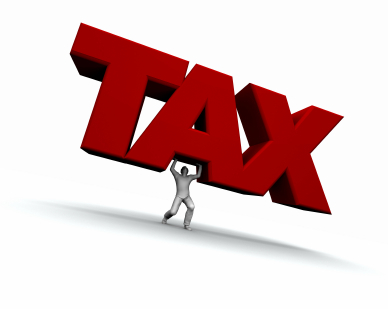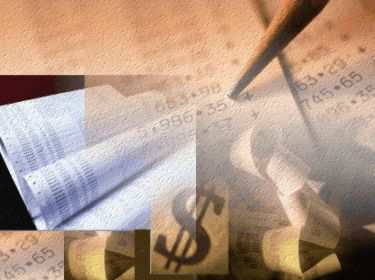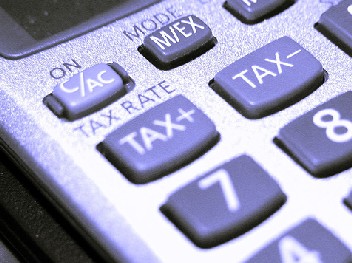
HMRC enquire into approximately 75,000 self assessment tax return each year which often results in extra tax being payable because business turnover has been understated or non allowable business expenses have been claimed, resulting in interest and penalties on the extra tax for that year and sometimes previous years. Avoid extra taxes, interest and penalties with these top tax questions.
What is Business Turnover?
Sales turnover is the amount the business earns before deducting business expenses including receipts of any kind for goods sold or work done such as commission, tips, payments in kind, fees and insurance proceeds. The turnover to be included in your financial accounts is the date it was invoiced or earned and not the date it was received.
What is excluded from Business Turnover?
Sales turnover excludes sales of fixed assets such as premises, vehicles and plant and equipment. Also exclude business start up allowances which are entered separately on the self assessment tax return. Money introduced to the business is excluded being capital introduced and not sales turnover.
What business expenses are allowable?
All running costs incurred solely for the purpose of the business may be deducted as allowable business expenses for Tax purposes including goods bought for resale, employee wages, premises rent and overheads, administration costs, vehicle running costs. Interest on loans and overdrafts can be claimed as business expenses excluding the capital element of repayments. Higher business expense levels accurately recorded can keep taxable profit below the higher tax rate.
Can the cost of buying and repairing plant and machinery be claimed?
Repairs and maintenance costs are allowable business expenses. The purchase cost including improvements and replacement costs are not allowable business expenses, these costs being subject instead to capital allowances. Depreciation is not allowed and replaced by Capital Allowances for the purposes of calculating the tax payable.
What are Capital Allowances?
Capital allowances are designed to write off the cost of purchasing a fixed asset over the life of the asset rather than in the financial year in which it was purchased. Capital allowances on the majority of assets are based upon a higher rate of allowance in the year of purchase, First Year Allowance with the balance of the cost being written off at a lower rate, Writing Down Allowance. The full cost of any asset may be claimed as an expense in the year it is sold or scrapped less the total of accumulated capital allowances that have been claimed against taxable profits. Any sales proceeds over and above the written down value after Capital Allowances is added back to net profits and becomes taxable. Cars are subject to writing down allowances but not First Year Allowances unless they are classed as commercial vehicles. DIY Accounting has small business software templates that automate the calculation of capital tax allowances.
Can expenses incurred for both business and personal purposes be claimed?
No. HMRC only allow such expenses if the business expenses element of the cost can be separated from the personal element. If you claim the travelling expenses to buy business goods they can be claimed for tax purposes but would be disallowed if you also showed evidence of personal items being purchased on the same journey. Using your home phone is an allowable business expense if you claim specific identified business calls in which case you would also be able to claim a similar proportion of the rental cost.
Can vehicle costs be claimed when that vehicle is also used for personal use?
Vehicle running costs and expenses such as fuel, excise duty, insurance, repairs and breakdown membership may be claimed as business expenses if the vehicle is used solely for business purposes. Travel from home to work is not business use and disallowed. Vehicle running costs, and capital allowances on vehicles, are split between claimable costs and a disallowed cost depending on the proportion the vehicle is used for business and personal use. Parking fees for business purposes may be claimed, parking fines and penalties for motoring expenses are not claimable as business expenses for tax purposes. An alternative to claiming vehicle running costs and vehicle capital allowances would be to claim mileage allowances which at the time of writing are 40p for the first 10,000 miles and 25p per mile thereafter a feature of which the DIY Accounting small business software automates
Can Business trips be claimed?
Travelling expenses and modest lunch expenses may be claimed. Hotel and reasonable costs of subsistence may also be claimed. A subsistence allowance can be claimed if staying with friends or family as an alternative to an hotel. The cost of lunch may not be allowed when staying away overnight. Lunch with clients is regarded as entertainment and is not allowed. If you are accompanied on a business trip by family only your cost is allowable and specifically only if the trip was purely for business purposes. Expenses on combined business and personal trips are not allowed to be deducted as business expenses on tax returns.
Can home costs be claimed?
If part of your home is identifiable as solely for business purposes then running costs can be claimed. The cost allowed is the proportion of the total area of the home the business area occupies. For example, excluding shared facilities of kitchen and toilet if the home has three bedrooms, living and dining room and one bedroom is used solely as an office then 1/5 of home costs could be claimed. The costs to claim would be heat and light, insurance, general and water rates and mortgage interest excluding repayment amounts. Where mortgage interest is claimed the revenue might also claim as a capital gain the increase in value of that proportion of the home, such Capital Gains Tax being subject to tapering relief over time.
How do I treat business goods taken for my own use?
Any business goods taken for personal use should be added to sales at normal selling prices including items supplied to family and friends at less than normal prices. He cost of providing services for family and friends is not allowable as a business expense.
Can I deduct my salary or drawings as a business expense?
You cannot deduct your own wages, personal national insurance or drawings from the business as a business expense as these are distributions of the business income after net taxable profit has been calculated and not allowable expenses before tax..
Can I deduct my partners wages?
Yes partners wages can be deducted as a business expense although there are rules which would be applied in such circumstances to ensure the amount paid is both real and reasonable. The business would need to operate a PAYE scheme for that employee, deducting income tax and national insurance, the work carried out must be real not invented and the rate paid reasonable for the nature of the work and the time spent. Evidence may also be required that the amounts were actually physically paid to that partner, for example in the form of a cheque.
Should Tax Credits be included?
No these are excluded from business profits although the level of credit received may subsequently be changed in the light of the actual business profit earned compared with the amount declared when the Tax Credit was applied for. HMRC do check that the net taxable profit shown on the tax return is the same as that declared when the Tax Credit was claimed.
Can I claim expenditure incurred prior to trading commencing?
Yes business expenses incurred up to seven years prior to trading commencing can be claimed. The actual date of the expenditure should be recorded although all pre-trading expenditure is treated as having been incurred on the first day of trading.
Are pool cars taxable?
Company cars are taxable as a taxable benefit while pool cars are not taxable. To qualify as a pool car, private use should be incidental to business use, the vehicle should not normally be kept at the employee home and the vehicle must be available and used by more than one employee.
 Terry Cartwright qualified as a Chartered Management Accountant and Chartered Company Secretary in 1971. A successful business career followed as Head of Finance for major companies in the UK and several consultancy appointments. In 2006 he created DIY Accounting producing Accounting Software for self employed and small companies that use simple accounts spreadsheets to automate tax returns.
Terry Cartwright qualified as a Chartered Management Accountant and Chartered Company Secretary in 1971. A successful business career followed as Head of Finance for major companies in the UK and several consultancy appointments. In 2006 he created DIY Accounting producing Accounting Software for self employed and small companies that use simple accounts spreadsheets to automate tax returns.

